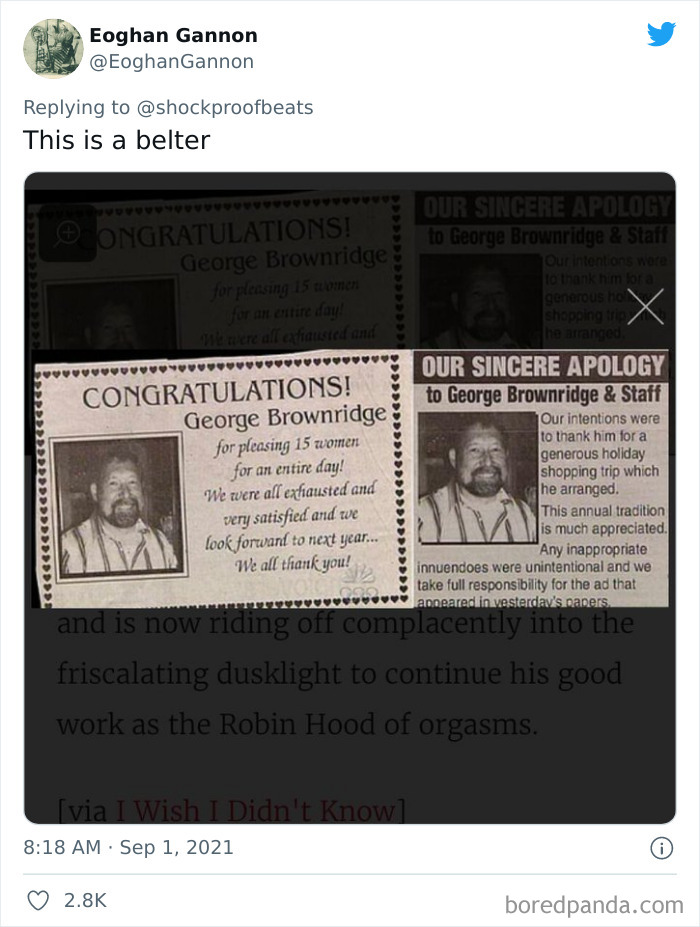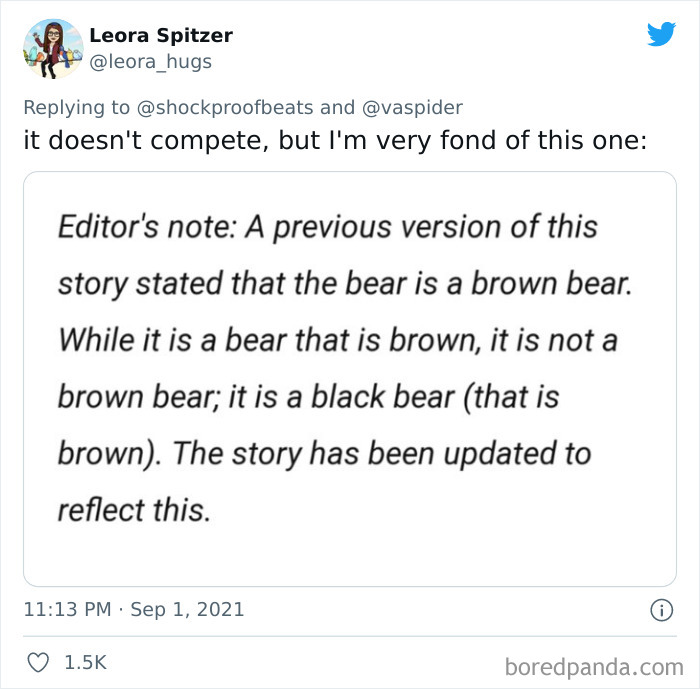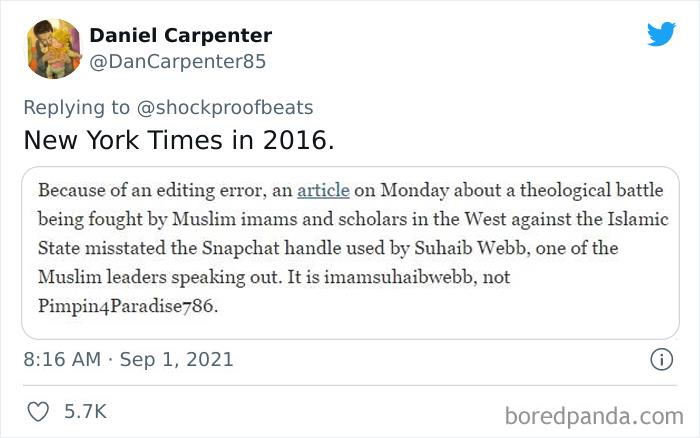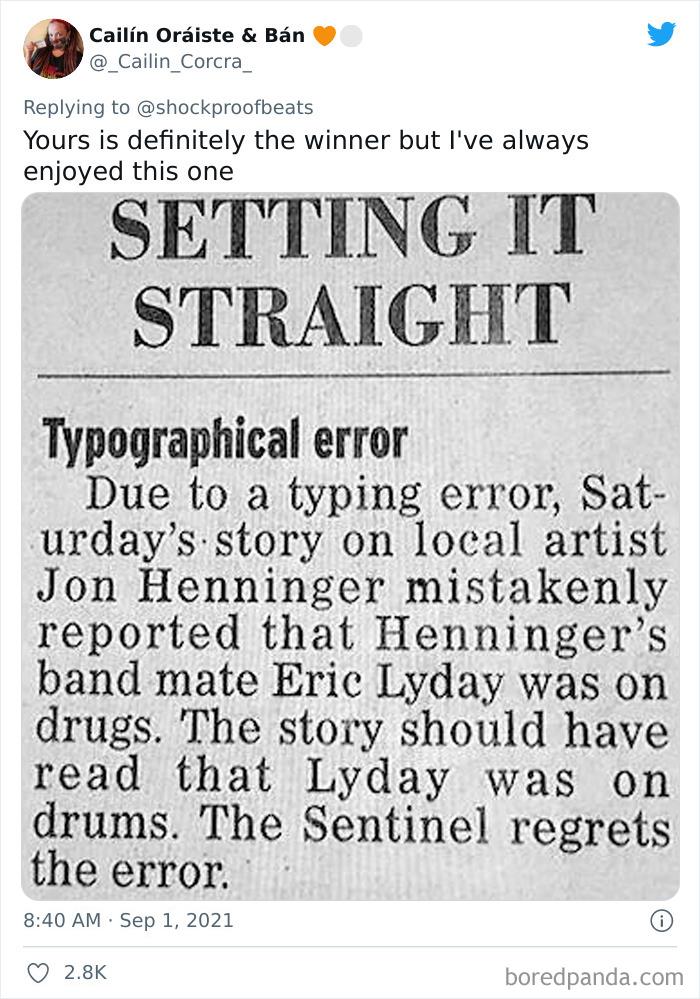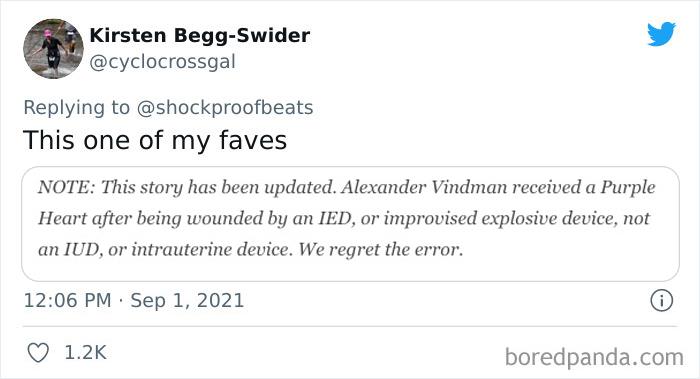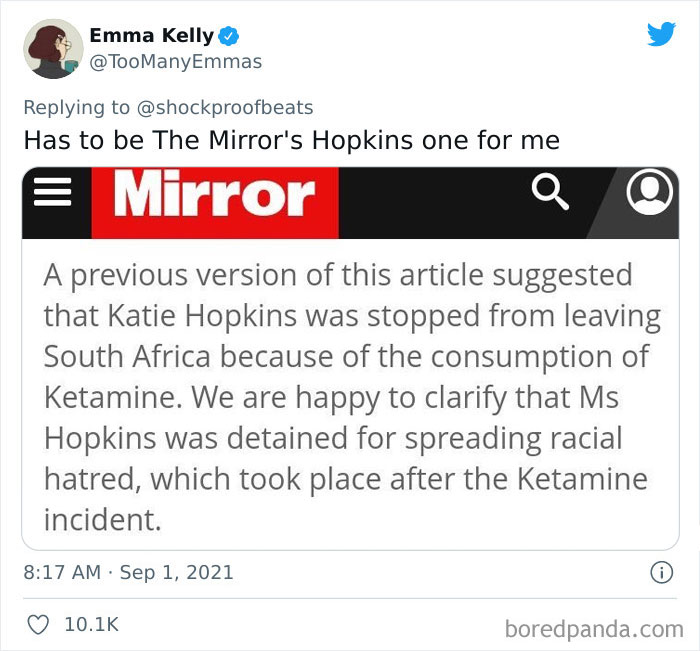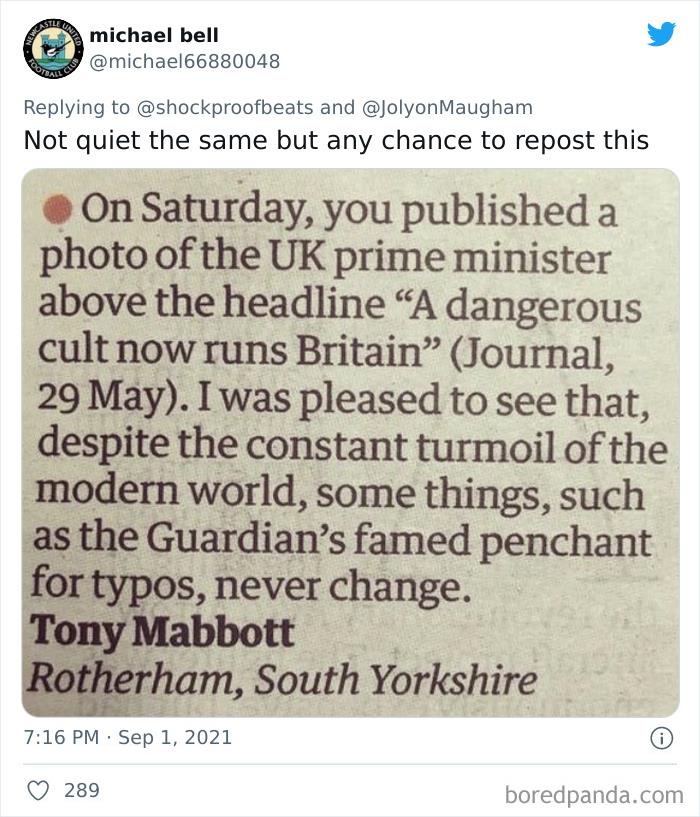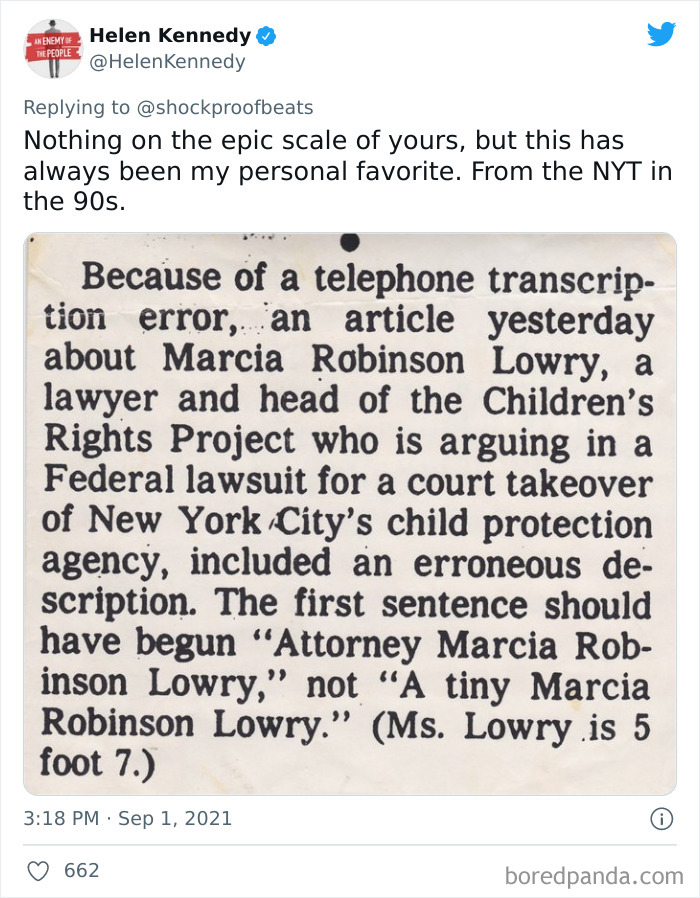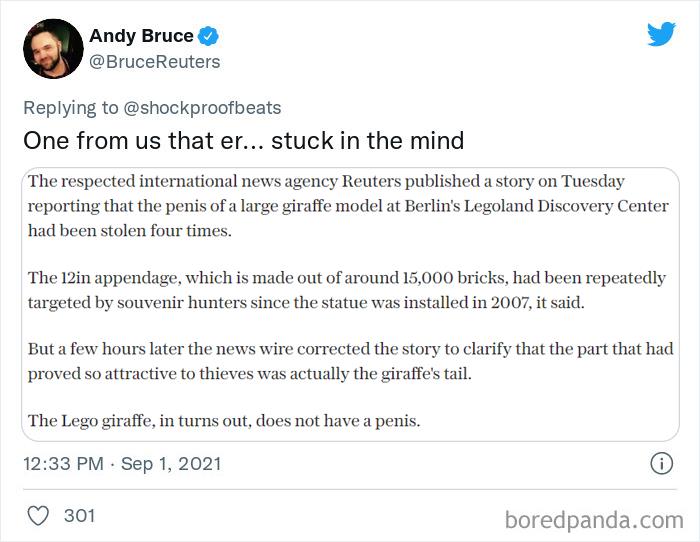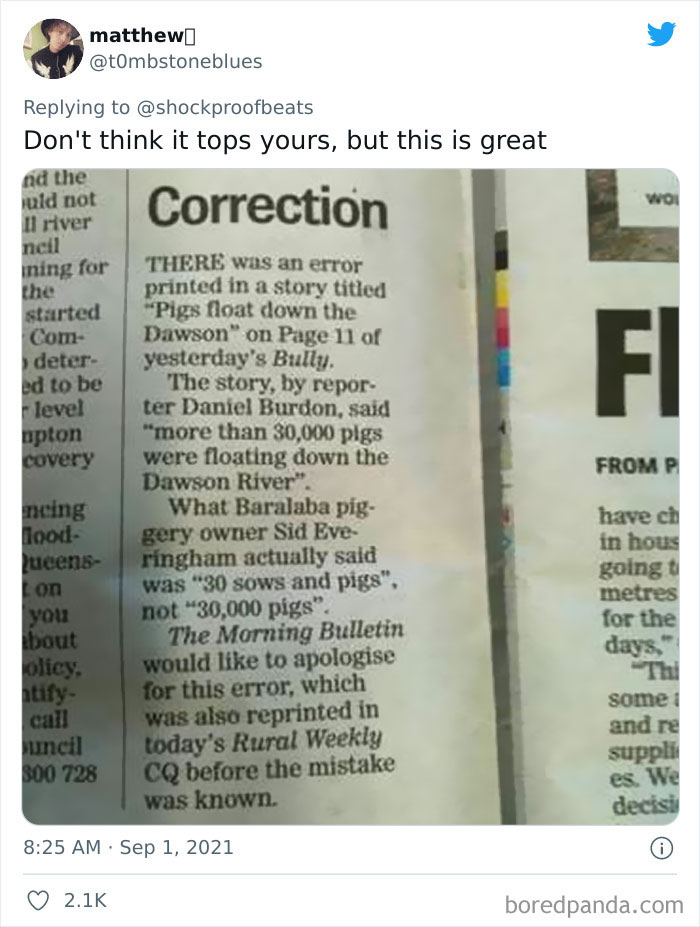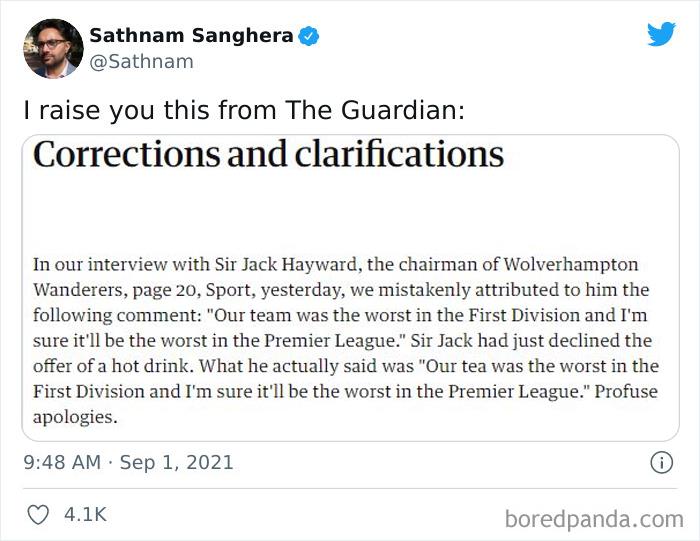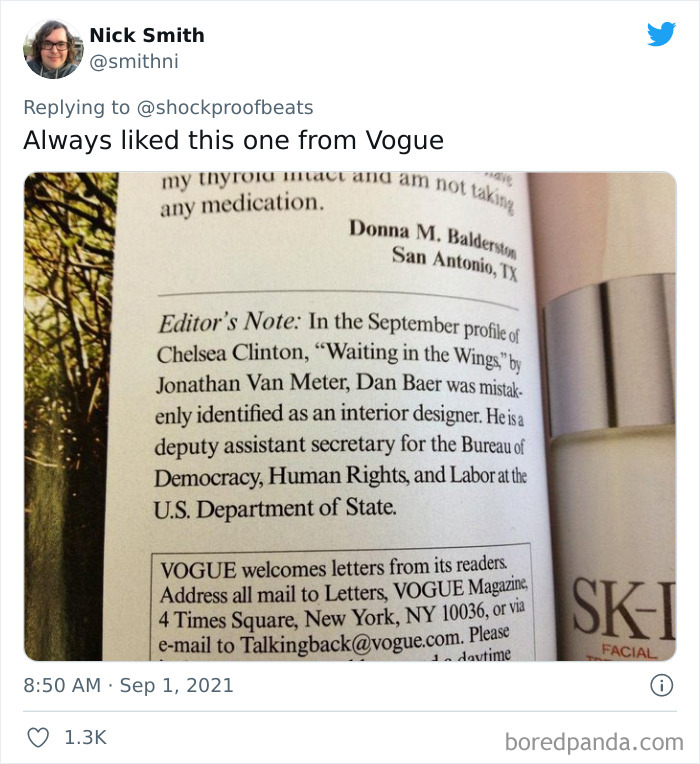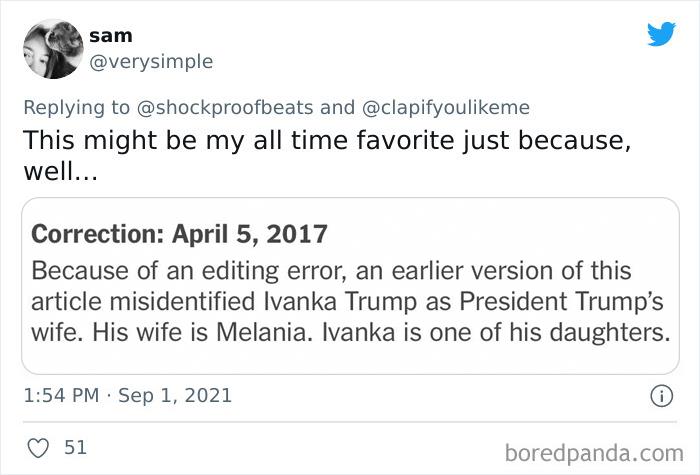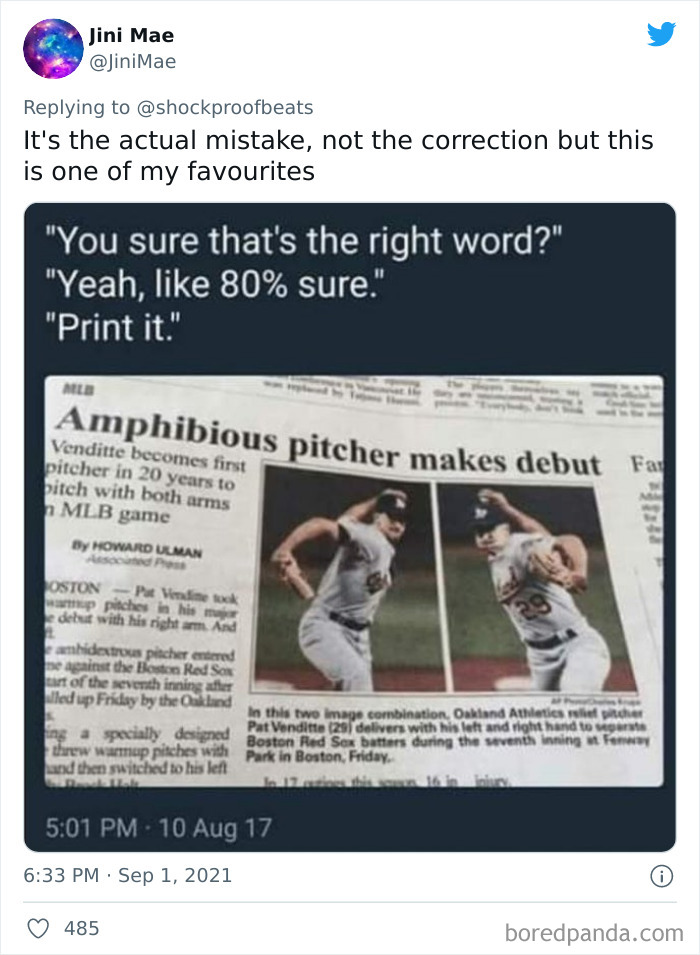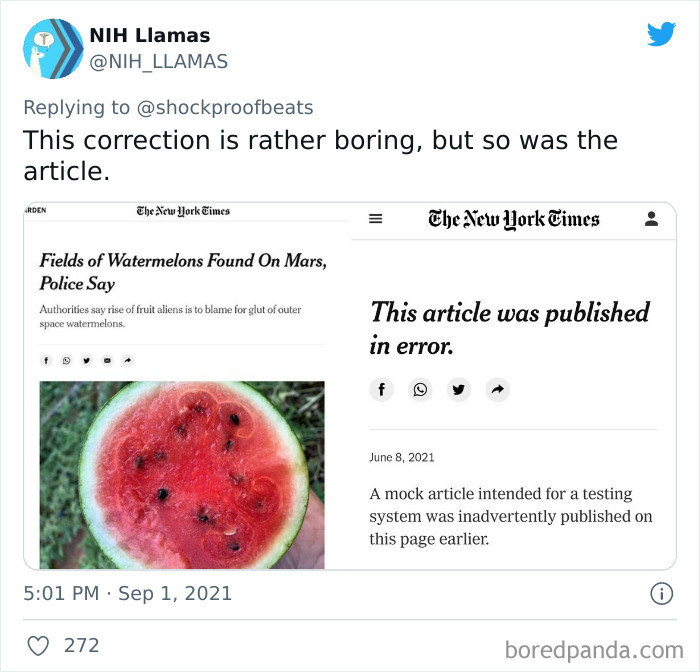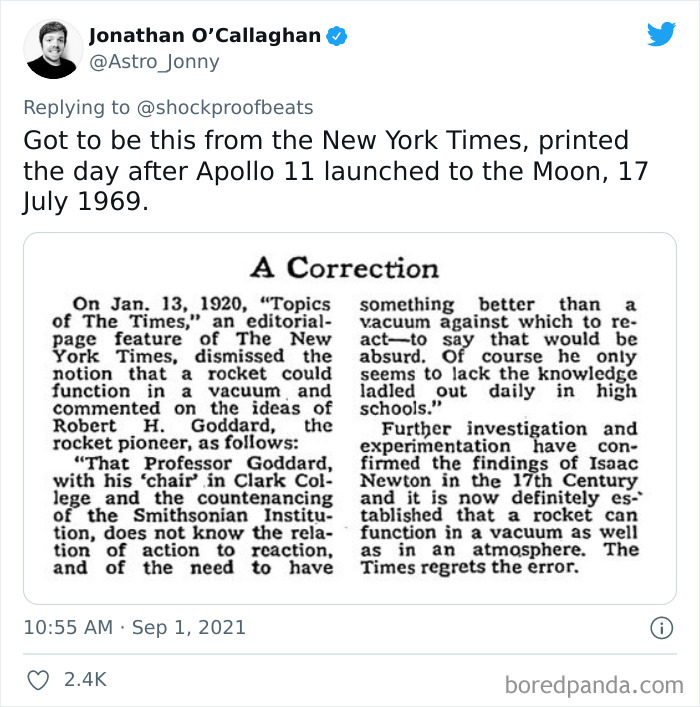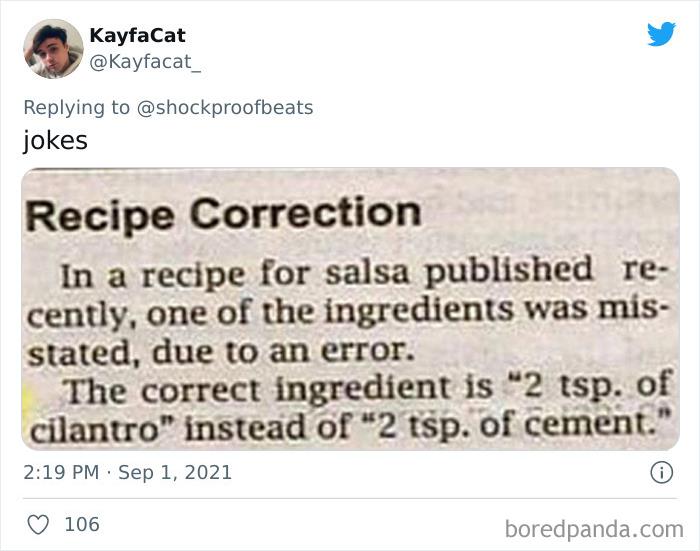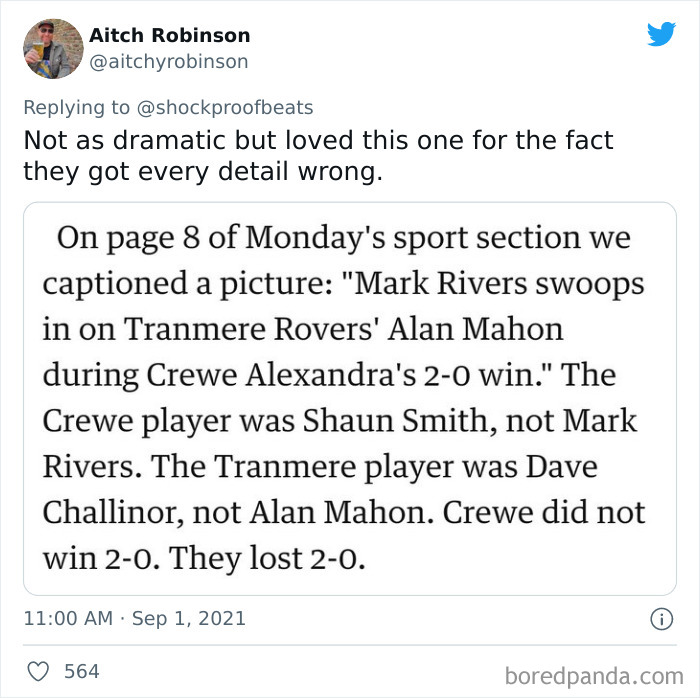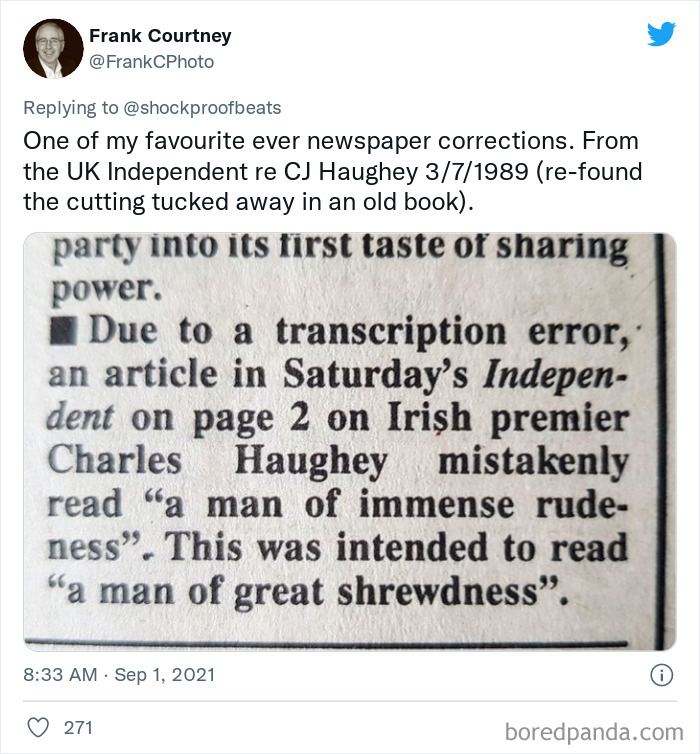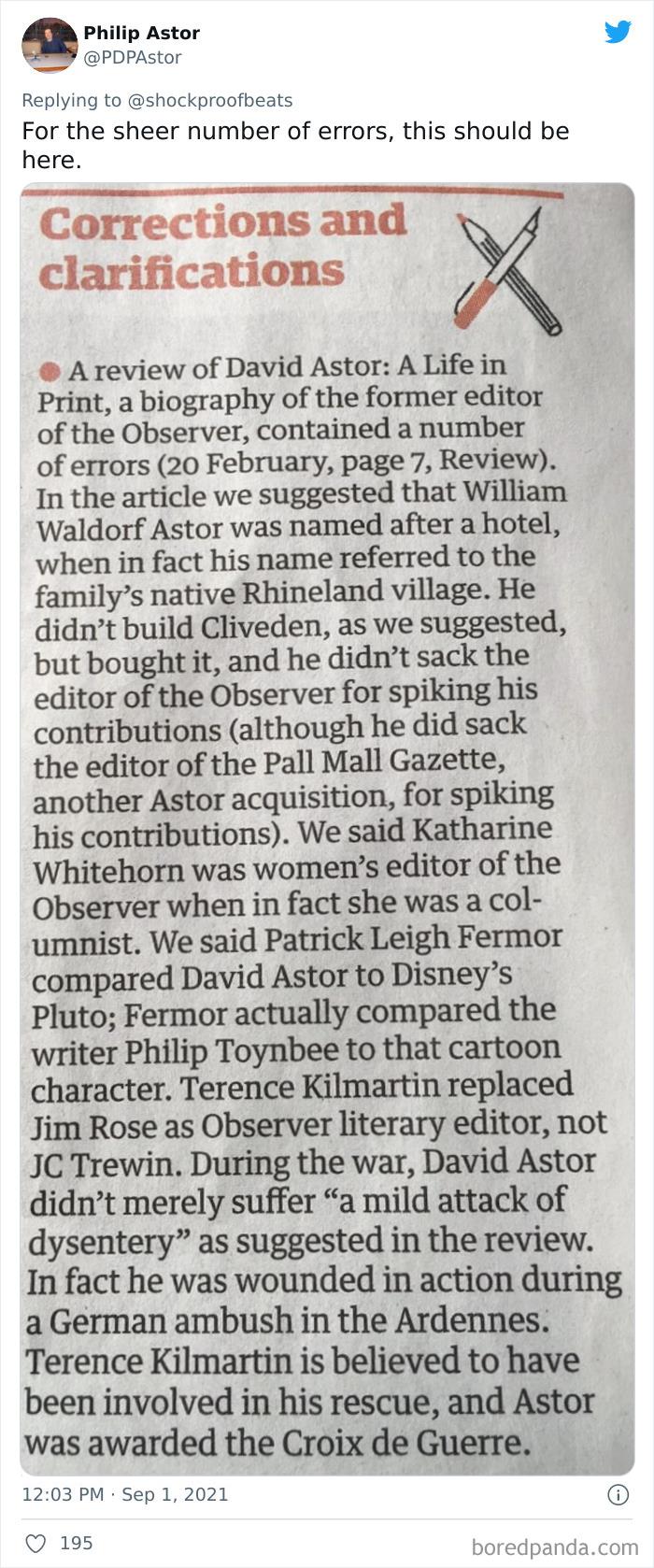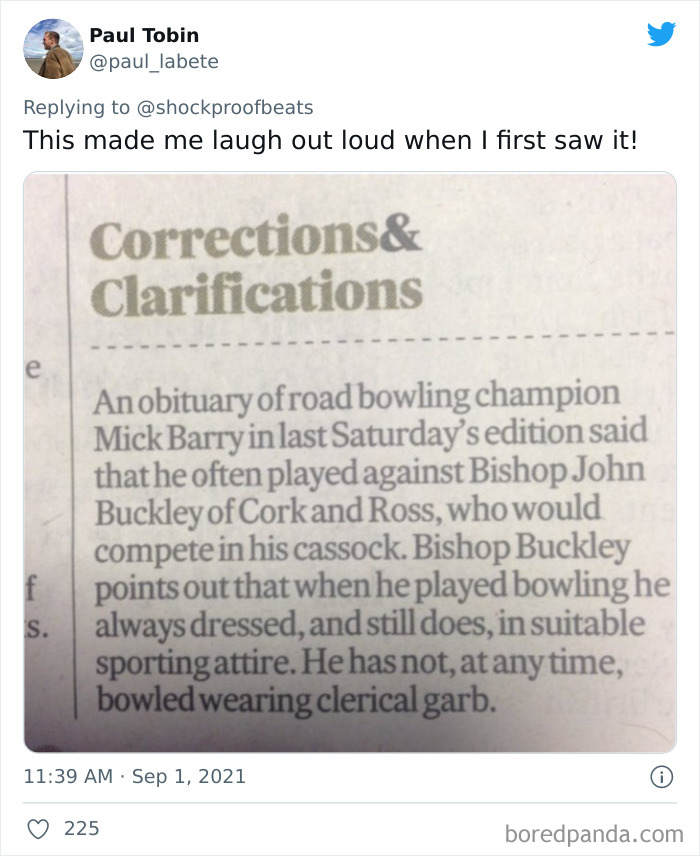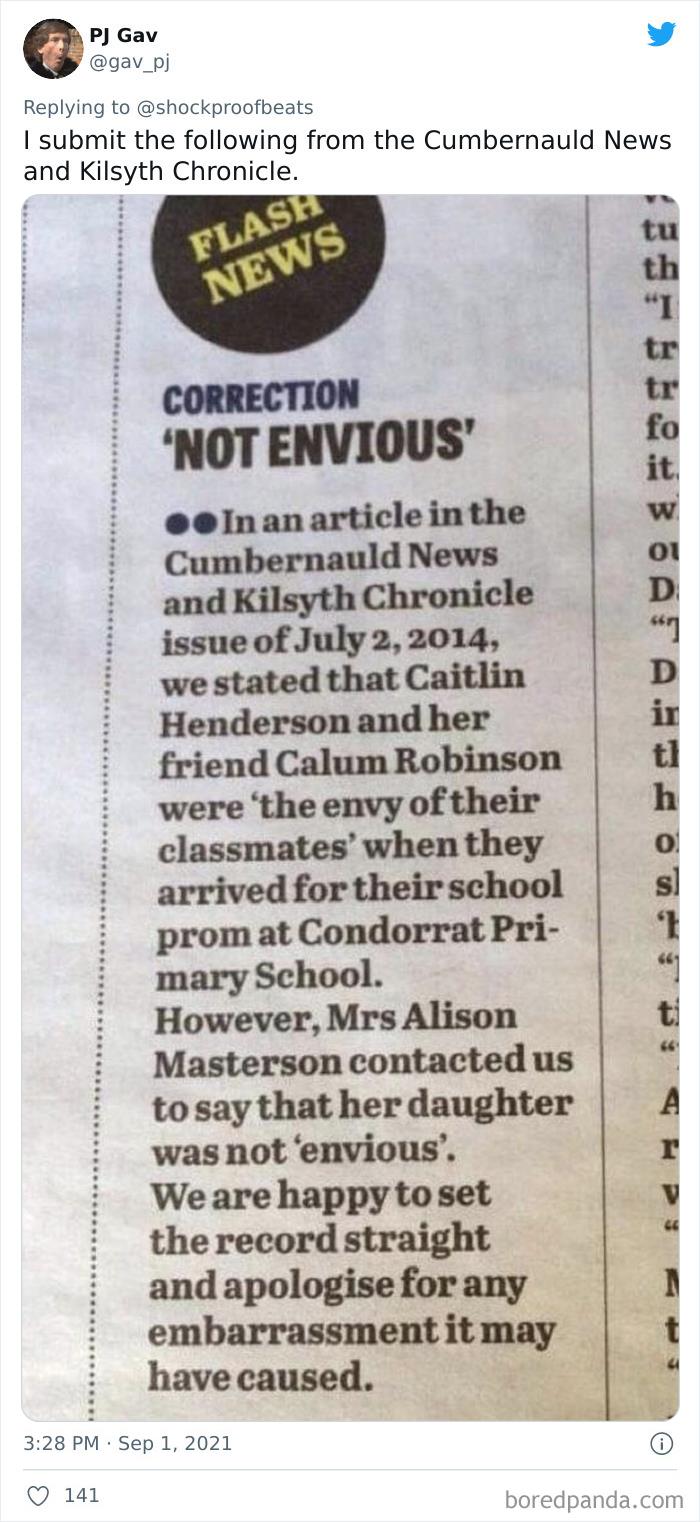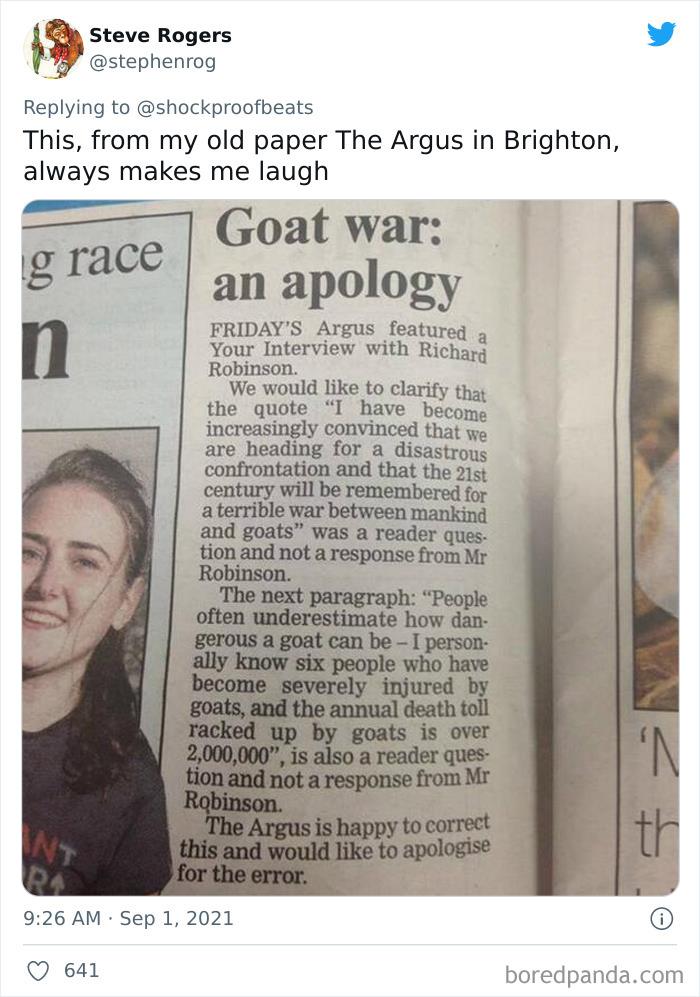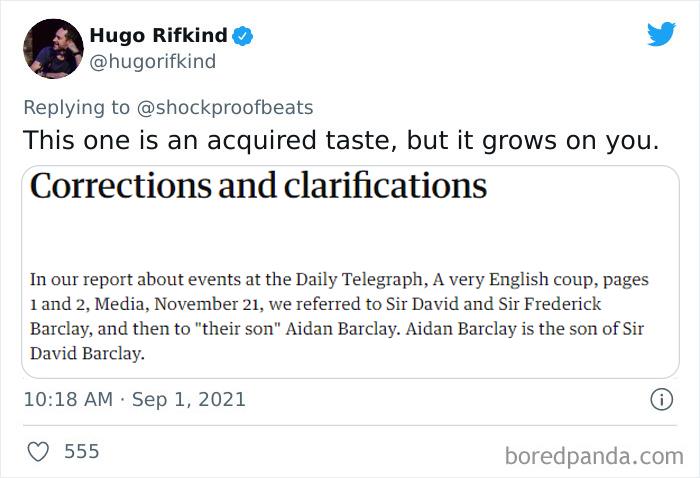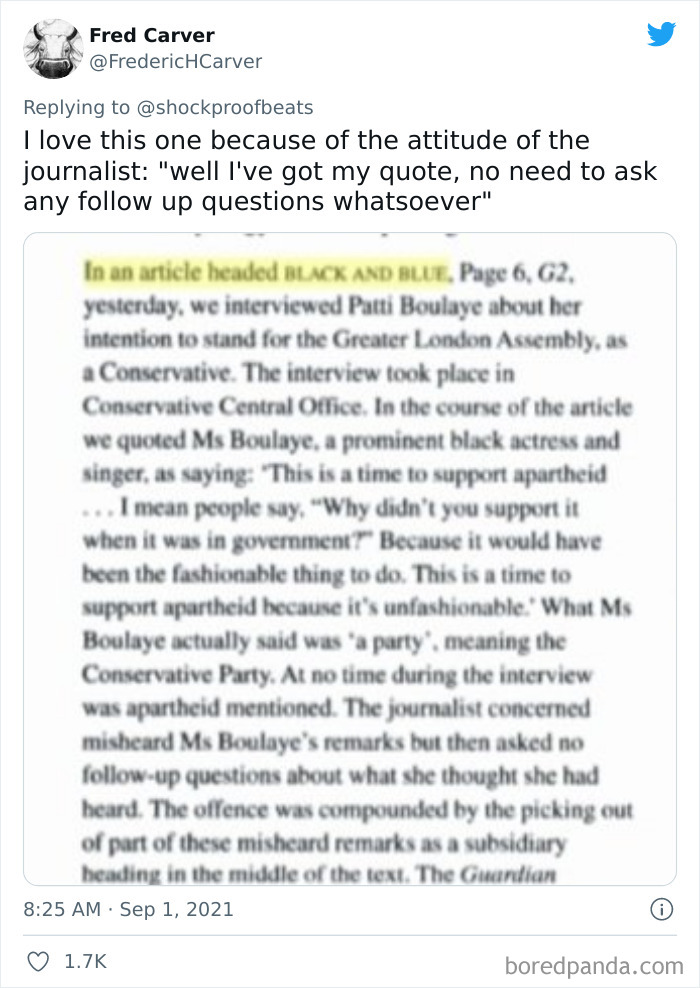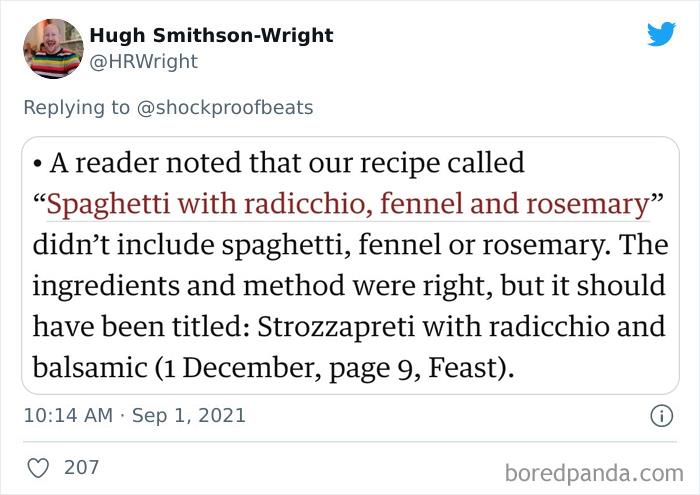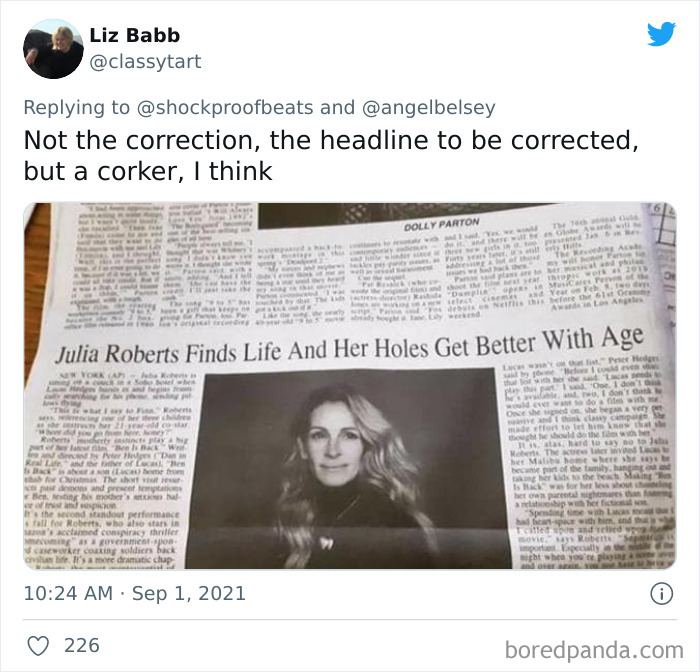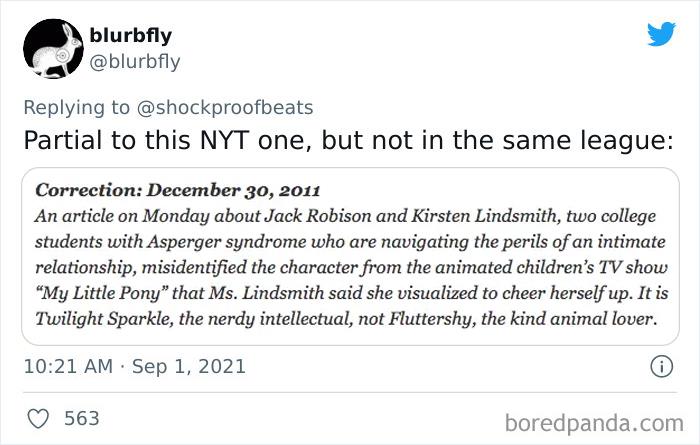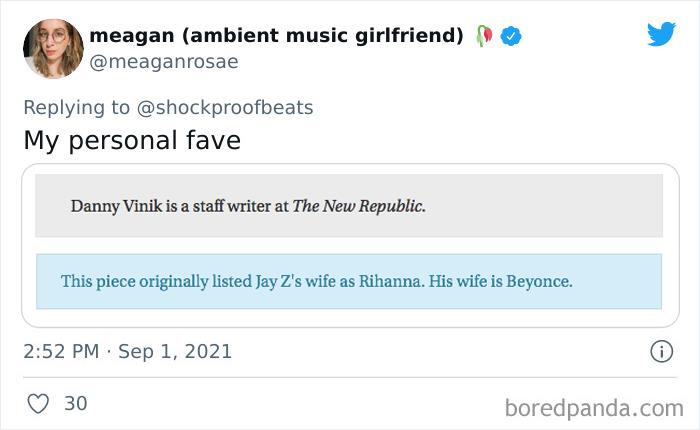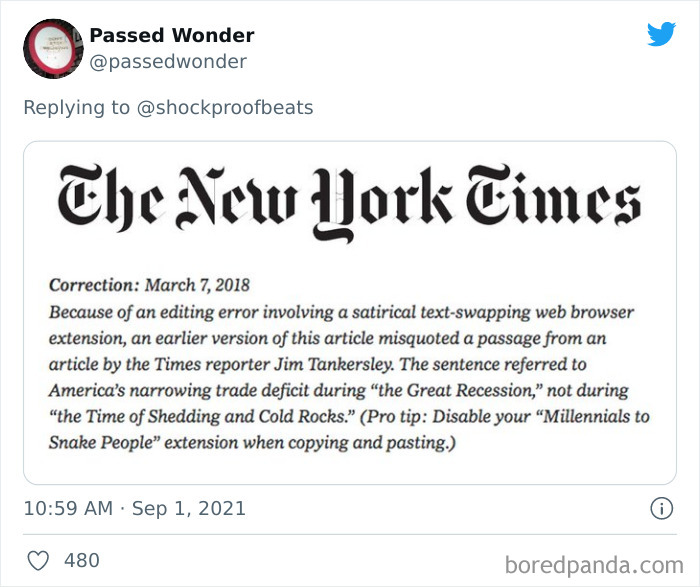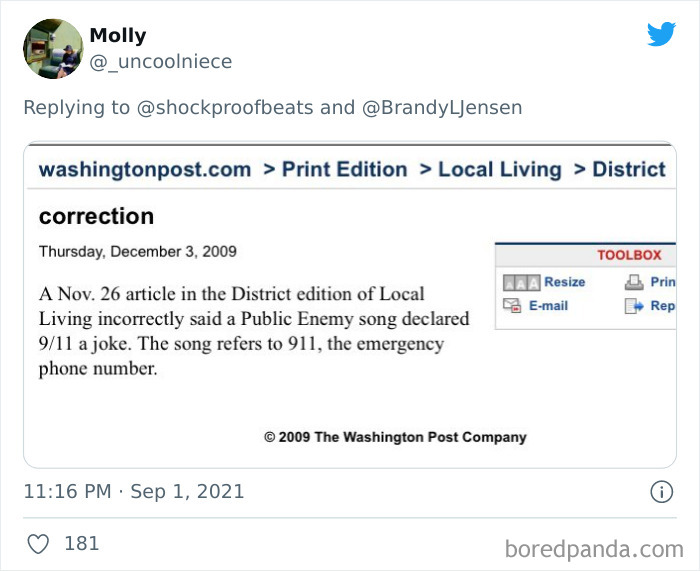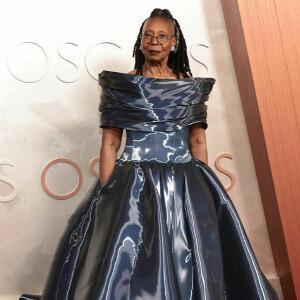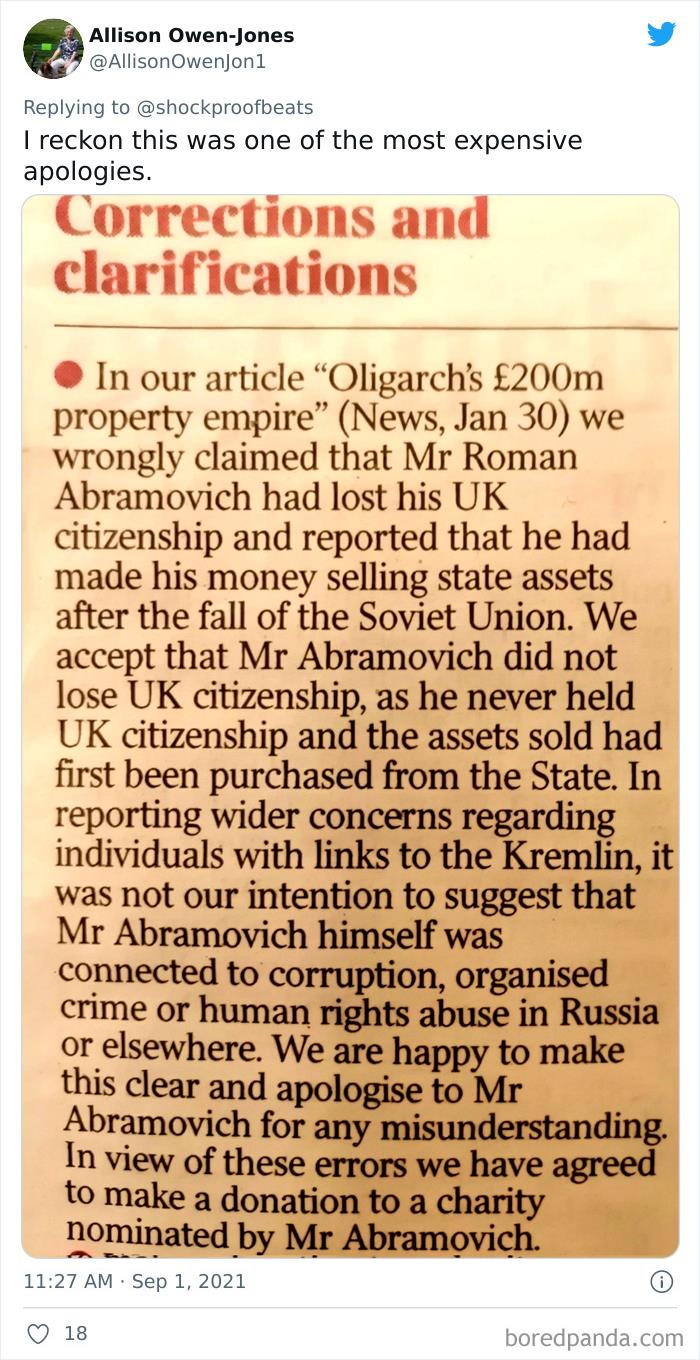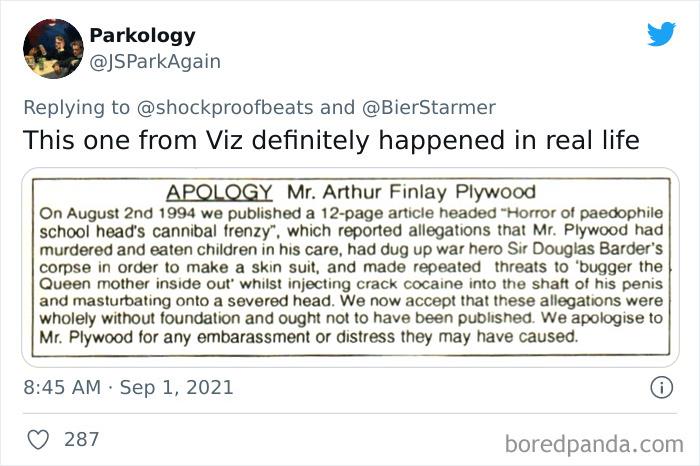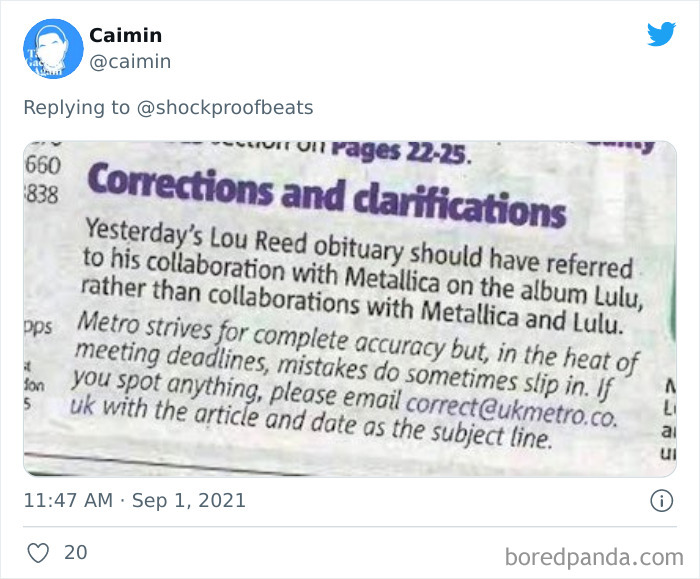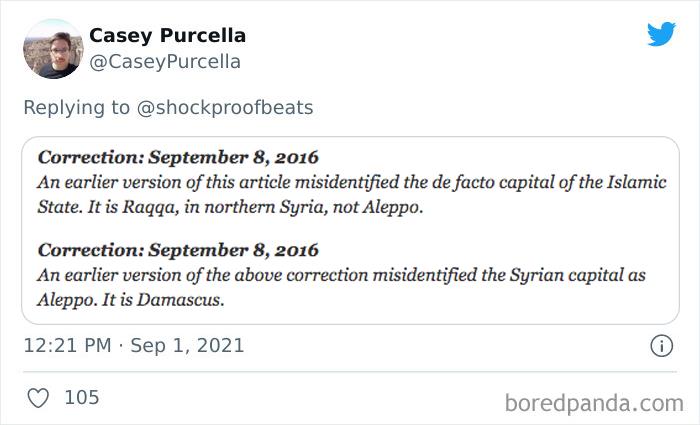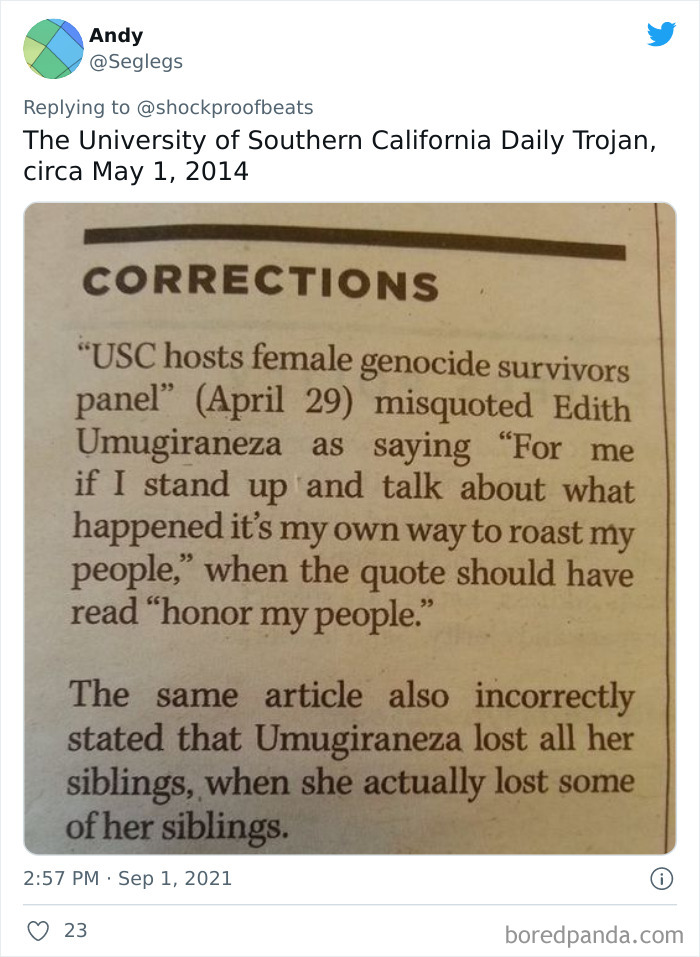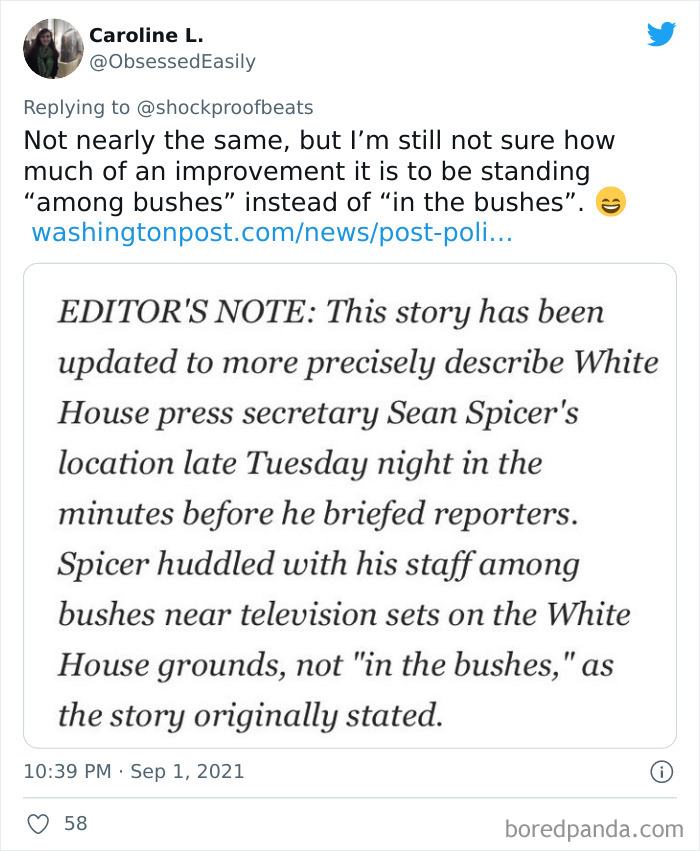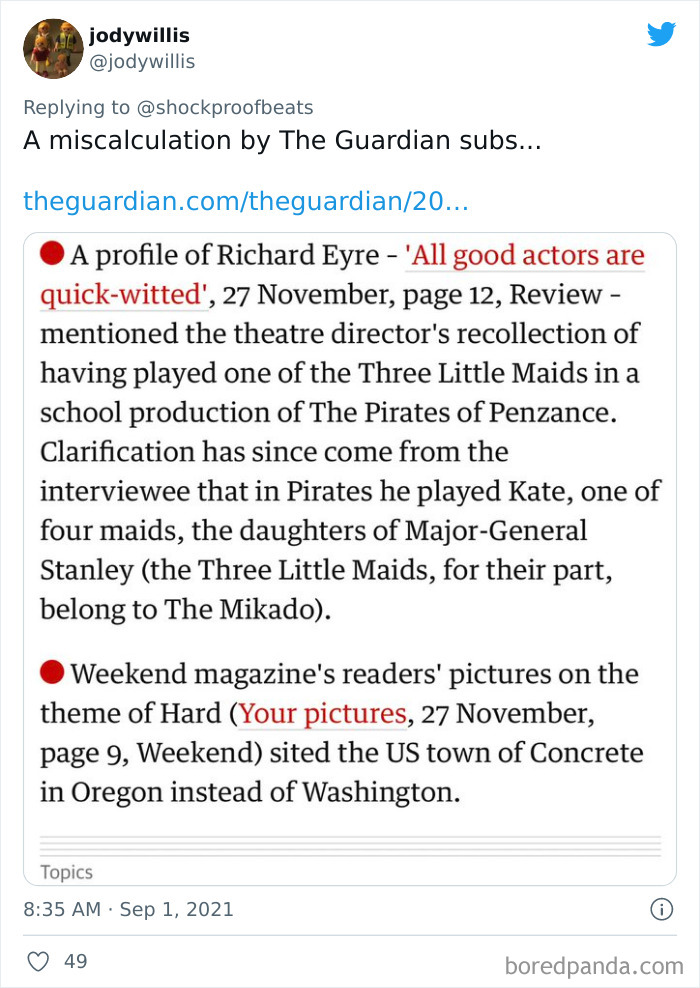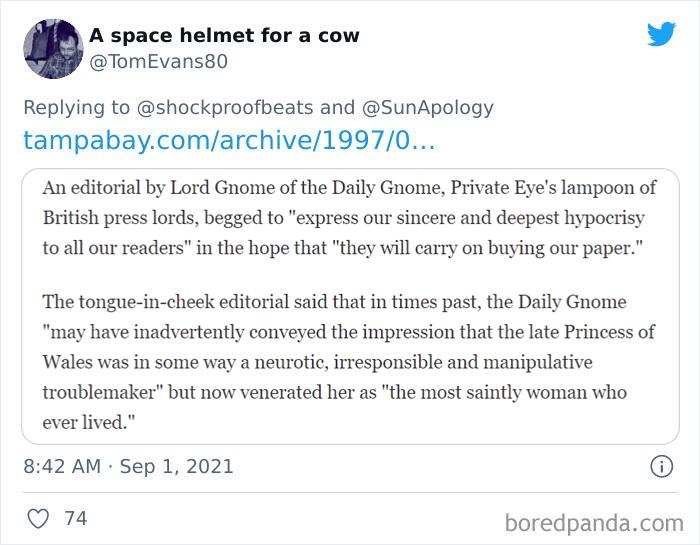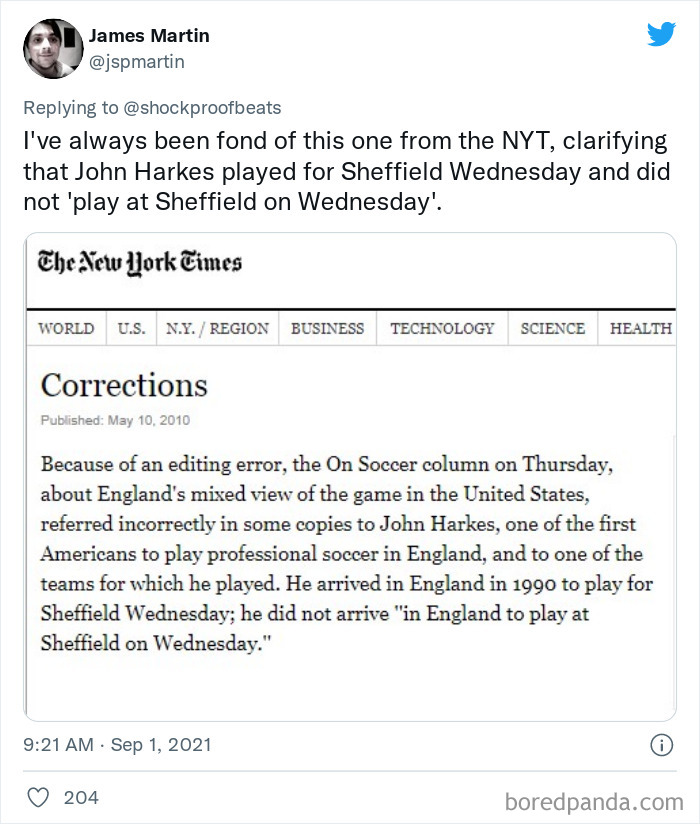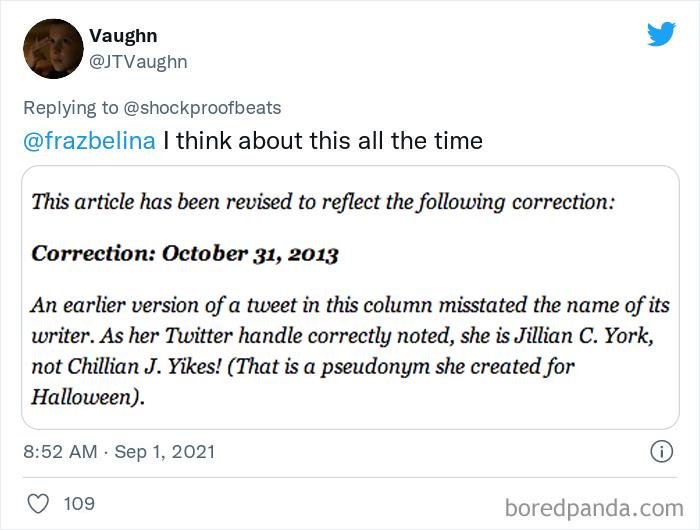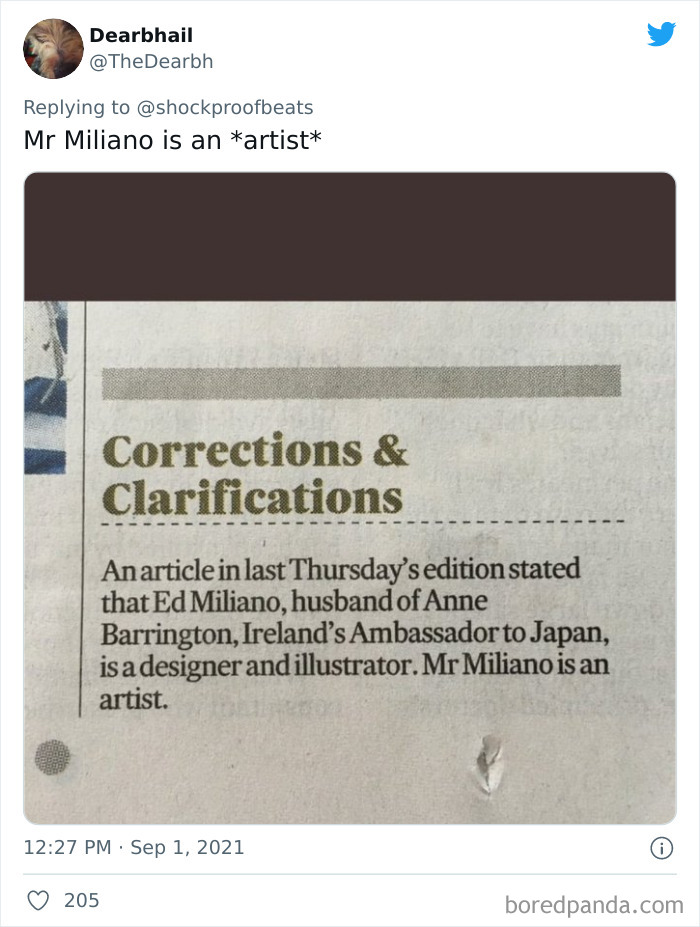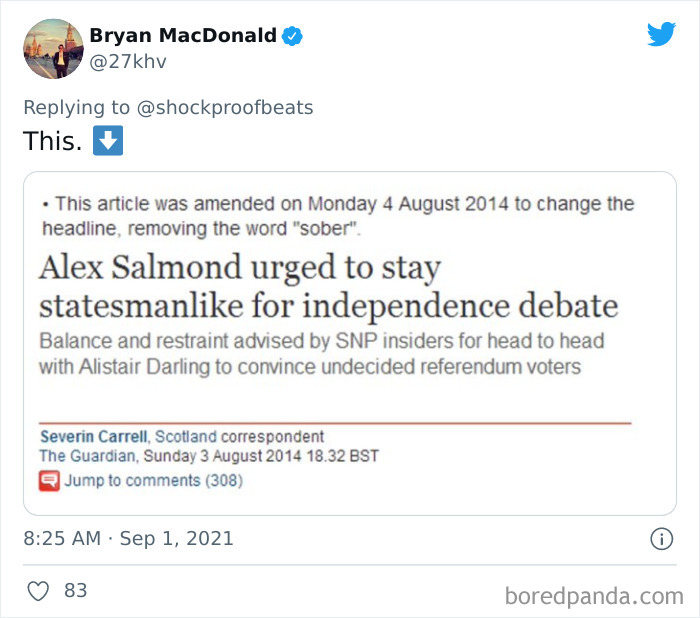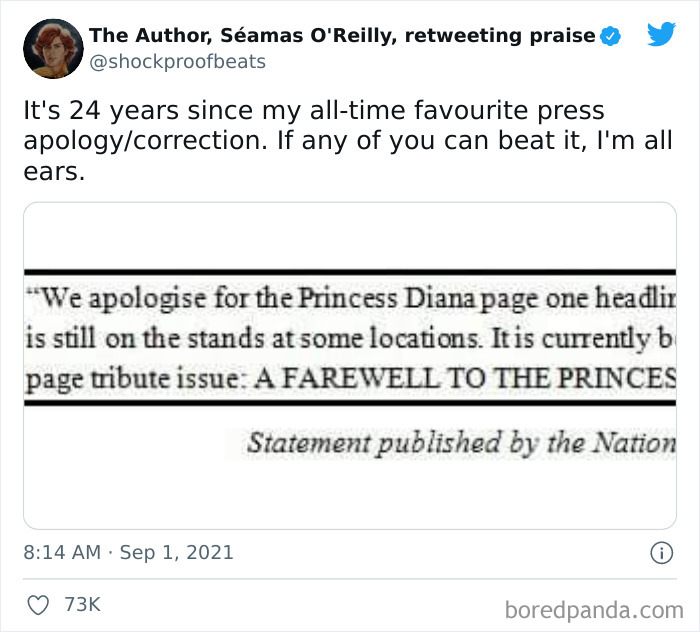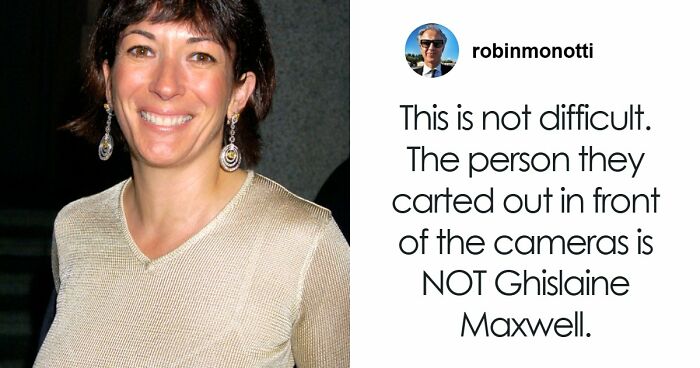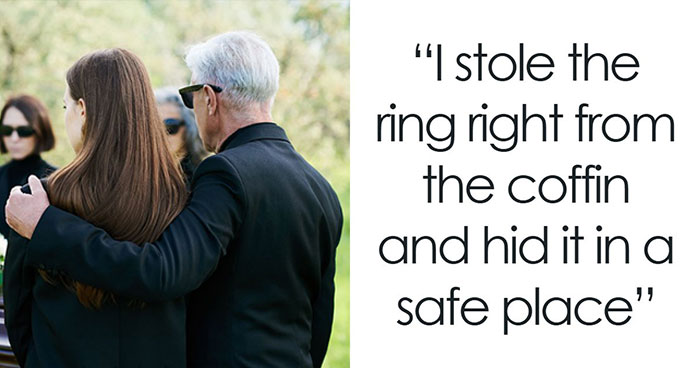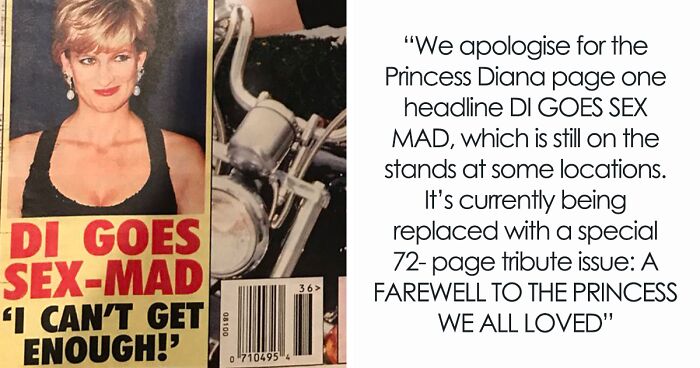
People On Twitter Are Sharing The Biggest Newspaper Fails That Resulted In Hilarious Corrections (30 Pics)
To paraphrase a Lithuanian proverb, proofread nine times, publish once. Because if you cheat at the first, you might end up like these editors who had to make up for it during the second.
Earlier this month, writer Séamas O'Reilly tweeted his all-time favorite press screw up/apology (published by the National Enquirer in 1997) and challenged other people to share more of them.
Luckily, O'Reilly's tweet went viral and his call to action was answered. Turns out, the days of traditional media were pretty wild!
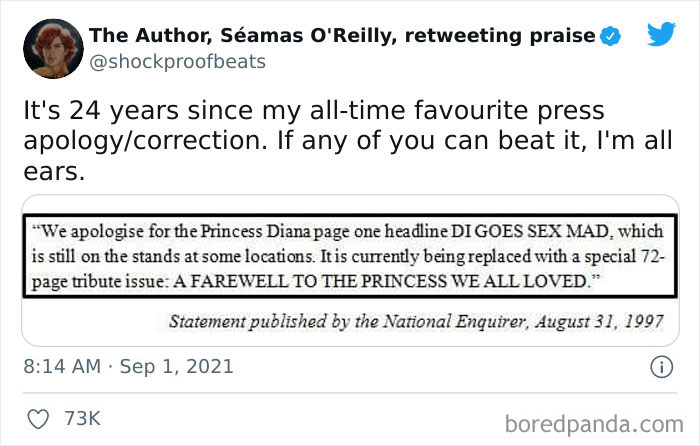
Image credits: shockproofbeats
This post may include affiliate links.
How many people called Donnie McArthur an old pouffe before he made a complaint?
Peter Hirshberg, who has led emerging media and technology companies for more than 25 years, said the internet has changed the way we make and experience nearly all media in just one generation. Gone are the days when journalists bashed their heads against the table after leaving a mistake in their text. Now, they can just click 'Edit' on their news website and get rid of it in a few seconds. The industry has picked up the pace.
"Writers for the blog website Gawker watch real-time web consumption statistics on all of their posts—and they instantly learn how to craft content to best command an audience," Hirshberg wrote. "The head programmer for Fox Television Network similarly has a readout that gives an in-depth analysis of audience behavior, interest, and sentiment. In the run-up to the final episode of the American television drama Breaking Bad, the series was drawing up to 100,000 tweets a day, a clear indication that the audience was as interested in what it had to say as what the producers were creating."
However, the process that happens before a story is published has also transformed. Aleks Krotoski, who has a Ph.D. in the social psychology of relationships in online communities, said the web has become the go-to point for the globe when it comes to getting information, and the same applies to reporters. "Online, they find a multiplicity of perspectives and a library of available knowledge that provides the context for stories. Increasingly, the stories are coming from the web."
Broadly speaking, technology has improved the processes of identifying stories that are newsworthy. Feeds from social platforms such as Facebook and Twitter "provide a snapshot of events happening around the world from the viewpoint of first-hand witnesses, and blogs and citizen news sources offer analytical perspectives from the ground faster than print or television can provide."
Even Paul Mason, the economics editor on BBC2's Newsnight, uses these tools to get an angle on what's happening and what's important. "If you are following 10 key economists on Twitter and some very intelligent blogs, you can quickly get to where you need to be: the stomach-churning question, 'OK, what do I do to move this story on?'" he said.
If you thought at the beginning of this piece that the internet and the ability to change stories even after they're live has made journalists less meticulous, you definitely had a reason to. But maybe that's not the case?
I will have you know that although that Caitlin Henderson and her friend Calum Robinson showed up to the prom in a golden carriage decorated with orchids and drawn by 8 white stallions, my daughter Deb Masterson was not envious when her father drove her there in our fully paid 2013 white Fiat Panda. Regards, MRS A.Masterson
Meh, this is much milder than some of the others. I mean, they could be Married and have a son, easily. Plenty of families that have two dads out there. This seems a bit out of place with the rest of these, which are obvious, funny mess-ups.
I'm Sure Lulu wouldn't have objected to collaborate with Lou Reed and Metallica.
My favorite that I actually saw was an Asheville, NC paper article on "Communist Bob Terrell . . ." corrected to "Columnist Bob Terrell . . ." I knew Bob and traveled with him at the time - he was their writer!
Where did the word sober appear in this sentence? "Sober Alex Salmond" or "urged to stay sober" or "sober independence debate".
I had a favorite from the NY Times that went something like this: “We apologize for writing that noted attorney F. Lee Bailey like to relax in ballet slippers. The article should have said he likes to relax in Bally slippers.” (It’s a posh Italian brand.)
I had a favorite from the NY Times that went something like this: “We apologize for writing that noted attorney F. Lee Bailey like to relax in ballet slippers. The article should have said he likes to relax in Bally slippers.” (It’s a posh Italian brand.)

 Dark Mode
Dark Mode 

 No fees, cancel anytime
No fees, cancel anytime 


